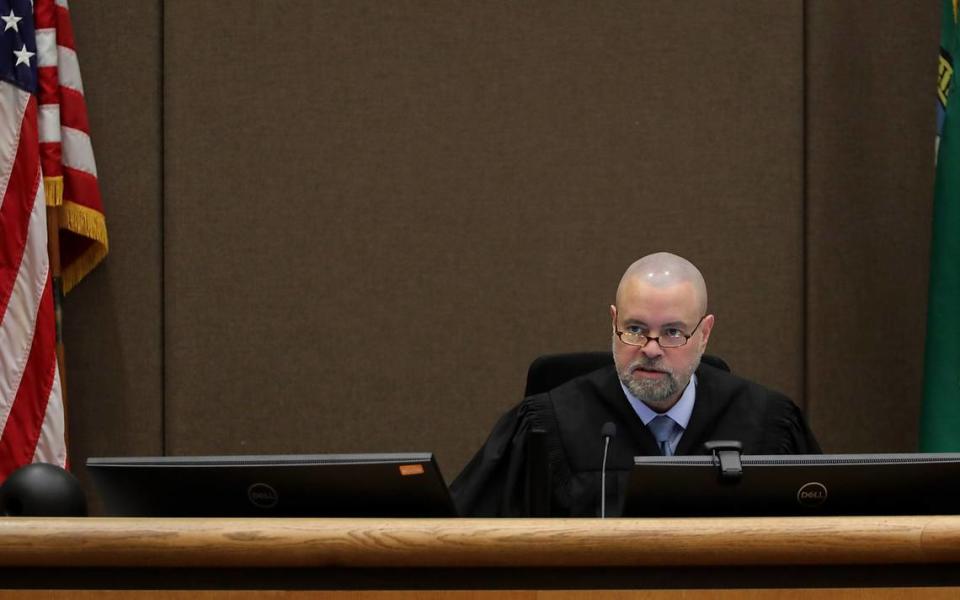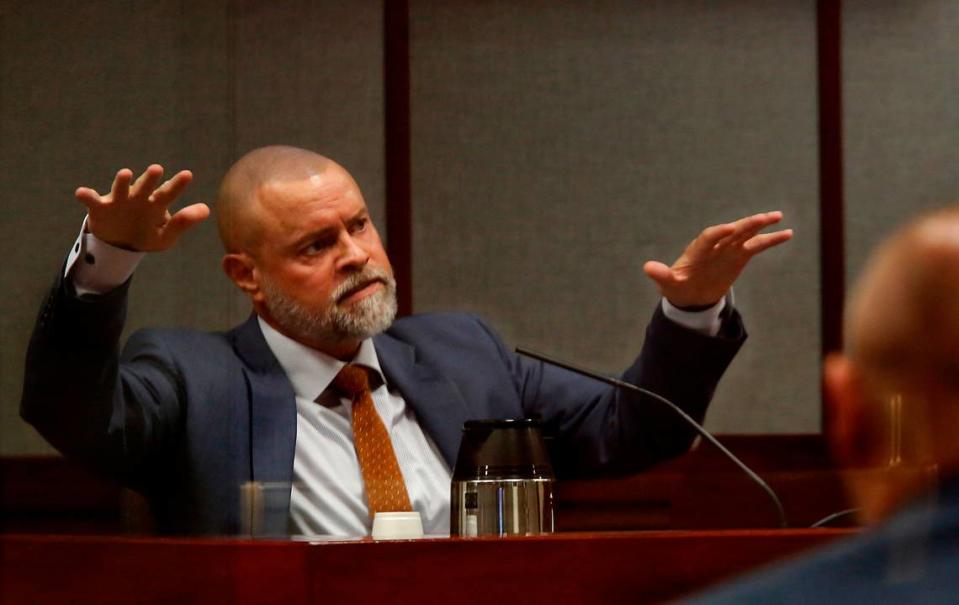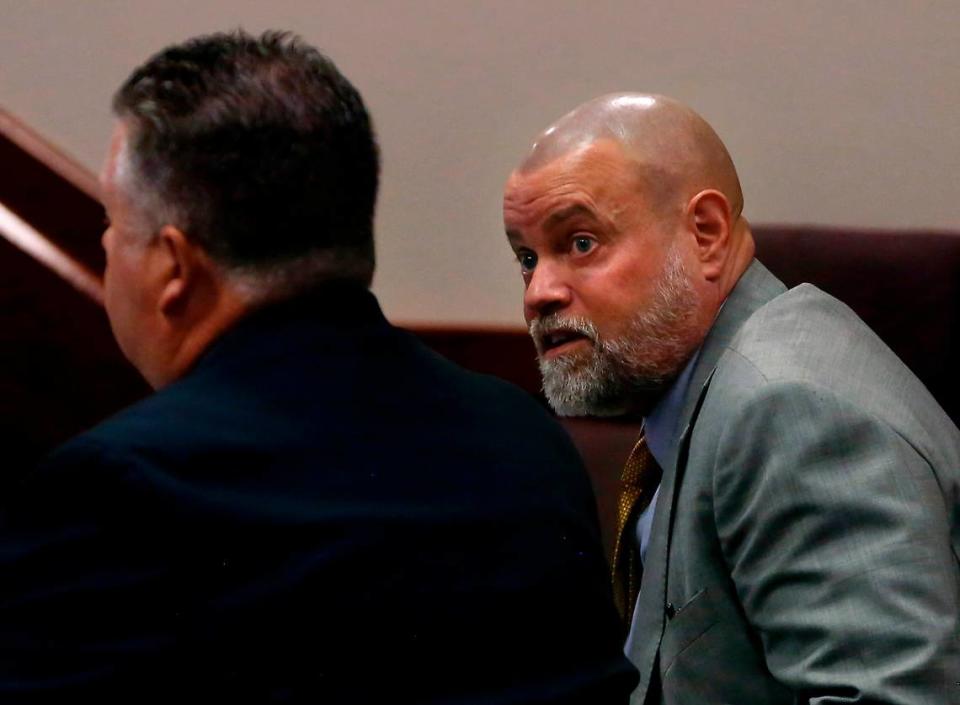Tri-Cities judge’s resignation won’t stop WA judicial hearing on harassment, DV claims
A Tri-Cities’ judge’s decision to resign doesn’t stop a disciplinary hearing scheduled for next month.
While it’s not clear what discipline Judge Sam Swanberg could possibly face, the Commission on Judicial Conduct hearing is still set for May 20.
“It’s pretty momentous for the commission to take action and to leave that without resolution is pretty problematic,” Reiko Callner, the commission’s executive director, told the Tri-City Herald.
But now Swanberg does not plan to be there, said his attorney Scott Johnson.
Swanberg announced late Thursday that he will resign May 17 from his position as one of seven Benton-Franklin Superior Court judges and returned to practicing law.
He will leave the position just days before eight members of the commission are expected to hear testimony on whether he violated three of the codes that guide judicial behavior in Washington state.
Swanberg is accused of breaking the law, acting in a way that hurt the public’s trust in judges and using his office to advance his personal interests, according to a statement of charges filed by the commission late last year.
But Callner told the Herald Swanberg’s decision to step away from the bench doesn’t stop the process.
There would need to be an agreement between the commission and judge that would “impose any terms and conditions deemed appropriate by the commission.”
Without an agreement in place, the commission’s hearing proceeds as planned.
Callner said it’s important for the process to continue to address the actions of judges by either fixing their behavior or giving them some public accountability.
It also has the effect of showing other judges what behavior is unacceptable, she said.

Johnson said the judge has tried to work with the commission to reach an agreement that included him resigning from the position. Swanberg was willing to stipulate to “the conduct he actually did,” said Johnson.
But Johnson said he was not willing to admit to acts of domestic violence, which he was acquitted of.
“From the moment Judge Swanberg was acquitted in Franklin County, the commission has been hell-bent on trying to undo what a fair, impartial, and independent jury concluded,” Johnson told the Herald in an email.
“The commission is now willing to go so far as to have a show trial that is not fair, that is not impartial, and that is not independent, in order to get their desired result.”

Judge accusations
The judge’s troubles started in late 2021 when a former girlfriend asked for an anti-harassment order in Benton County to keep him from bothering her. The two started dating that spring when she worked for the Franklin County Clerk’s Office in Pasco.
As part of that case, his ex-wife Stephanie Barnard, now a state legislator, said she suffered years of mental and physical abuse at his hands. They’d been married 33 years and have six children.
While Swanberg did not fight the ex-girlfriend’s anti-harassment order, he denied abusing Barnard.
Her accusations led to a Franklin County sheriff’s investigation and two charges of domestic violence assault. He was acquitted of the charges in 2022.

After the judicial conduct commission conducted its own investigation, it started disciplinary proceedings.
Nearly a year later, the commission believes it has enough proof to level charges against Swanberg for violating the code of judicial conduct. Johnson previously pointed out that the charges are only allegations because Swanberg was acquitted.
Commission hearing
While Johnson claims the result of the hearing is a foregone conclusion, Callner said it’s far from that and it’s quite possible that commission members will determine something else.
She said there have been hearings where the commission found the judge didn’t violate the rules.
Johnson called the hearing “political grandstanding” by “the Olympia-based” commission as part of Swanberg’s announcement.
Callner responded that she doesn’t know what politics are being served in pursuing the accusations against Swanberg. The position of judge is apolitical and the commission’s goal is to evenhandedly apply the rules.
The commission’s charge “is to maintain the public trust and confidence in the independent, impartiality and integrity of the judiciary.”
“You should be able to come before any judge in any court and expect to have your conflict resolved fairly and consistently no matter who you are,” she told the Herald. “Judges have to protect public trust and confidence in those things.”
While Johnson has accused the commission of using the hearing to sidestep the Franklin County verdict, Callner said the goals of the hearing are different than the criminal trial. They are only concerned with how Swanberg may or may not have violated ethics rules.
What will happen
At the hearing, the commission will need to convince a majority of the members that Swanberg took the actions he is accused of and that they violated the rules judges must follow, Callner previously told the Herald.
They have to meet the standard of “clear, cogent and convincing” evidence, which is a lower standard than the criminal standard of “beyond a reasonable doubt,” she said.
After the May hearing, the members will deliberate and come to decision. Commission rules require the decision to be presented publicly during a regular or special commission meeting.
The members don’t all need to agree on the ruling, and any member can file a dissent.
They can decide to either dismiss the charges or admonish, reprimand or censure a judge. An admonishment is a written warning, while a reprimand requires some remedial measures.
The highest level of punishment — censure — can involve suspension or removal from the bench. Any decision involving suspension or removal must be approved by the Washington State Supreme Court.
Swanberg also can appeal the commission’s decision to the state Supreme Court.
It’s unclear if the commission’s decision will affect his ability to practice law in Washington. Callner said there have been cases where the Washington State Bar Association has done it’s own review of cases first taken up by the judicial commission.
The Herald was unable to reach the bar association about the issue.

